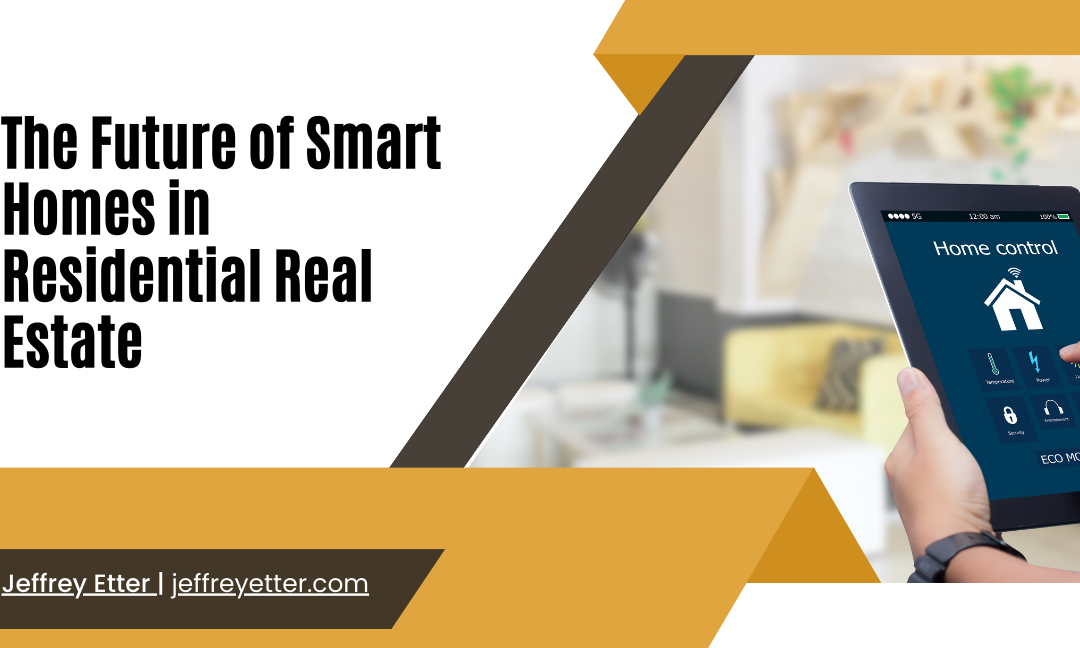As technology continues to advance, smart homes are becoming an increasingly prominent feature in residential real estate. These homes are equipped with devices that allow homeowners to control various systems remotely, such as lighting, security, temperature, and even appliances, all through the convenience of smartphones or voice-activated assistants. The future of smart homes promises to redefine how we live and interact with our living spaces, offering increased efficiency, convenience, and safety.
One of the most significant trends in the evolution of smart homes is the integration of artificial intelligence. AI-powered systems will enable homes to learn from the behaviors and preferences of their inhabitants, automatically adjusting settings to create a more personalized living environment. For instance, a smart thermostat can learn when the occupants are home and adjust the temperature accordingly, saving energy when the house is empty while ensuring comfort when they return. These systems will become even more intuitive over time, anticipating needs and offering suggestions based on data collected from various sensors and devices in the home.
The demand for energy-efficient and sustainable living spaces is also driving the growth of smart homes. With a focus on reducing carbon footprints, smart homes are increasingly being designed with energy-saving technologies that not only benefit the environment but also help homeowners lower their utility bills. Solar panels, energy-efficient lighting, and smart appliances are becoming standard in many new builds. In the future, homes could be equipped with even more sophisticated systems that monitor energy consumption in real time and make automatic adjustments to optimize energy use, ensuring that homes are as green as possible without sacrificing comfort.
In addition to sustainability, the security capabilities of smart homes will continue to evolve. With advanced sensors, cameras, and alarm systems, homeowners will be able to monitor their properties remotely with a level of precision that was once unimaginable. The future may even bring more advanced biometric security measures, such as facial recognition or fingerprint scanning, to ensure that only authorized individuals can access certain areas of the home. With increasing concerns over safety, these high-tech security features will provide peace of mind and greater control over personal spaces.
Smart homes will also play a key role in aging-in-place solutions. As the population ages, there is growing demand for homes that can adapt to the needs of elderly residents. In the future, smart homes could be equipped with health monitoring devices, such as wearable sensors that track vital signs or motion detectors that alert caregivers if an elderly person has fallen. These technologies will allow seniors to live independently while receiving the necessary support in case of emergencies. The integration of smart home technologies into healthcare will become an essential part of making homes more accessible and accommodating for people of all ages.
While the benefits of smart homes are undeniable, there are also challenges to overcome. Privacy concerns are at the forefront of discussions surrounding smart home technology, as the devices collect vast amounts of personal data. Homeowners will need to be mindful of security risks related to hacking or data breaches, which could potentially compromise sensitive information. As the industry continues to grow, it will be crucial for companies to establish robust security measures and educate consumers about safeguarding their data.
As smart home technology becomes more affordable and widely accessible, the potential for its integration into the real estate market will only increase. Homebuyers are already looking for properties that offer modern amenities and convenience, and the demand for homes equipped with smart features will continue to rise. Real estate agents and developers will need to stay ahead of the curve by incorporating smart technologies into their properties to meet this growing demand. In the future, it may become standard for new homes to come equipped with the latest smart systems, further integrating technology into our everyday lives.
The future of smart homes in residential real estate is undeniably exciting, as technological advancements promise to transform the way we live. From energy efficiency and security to personalized living experiences and accessibility for seniors, the integration of smart technologies will continue to shape the homes of tomorrow. While there are challenges to address, such as privacy concerns and data security, the potential for smart homes to improve quality of life and redefine the residential experience is immense. As innovation continues to push the boundaries, the future of smart homes will undoubtedly offer a more connected, sustainable, and comfortable way of living.

